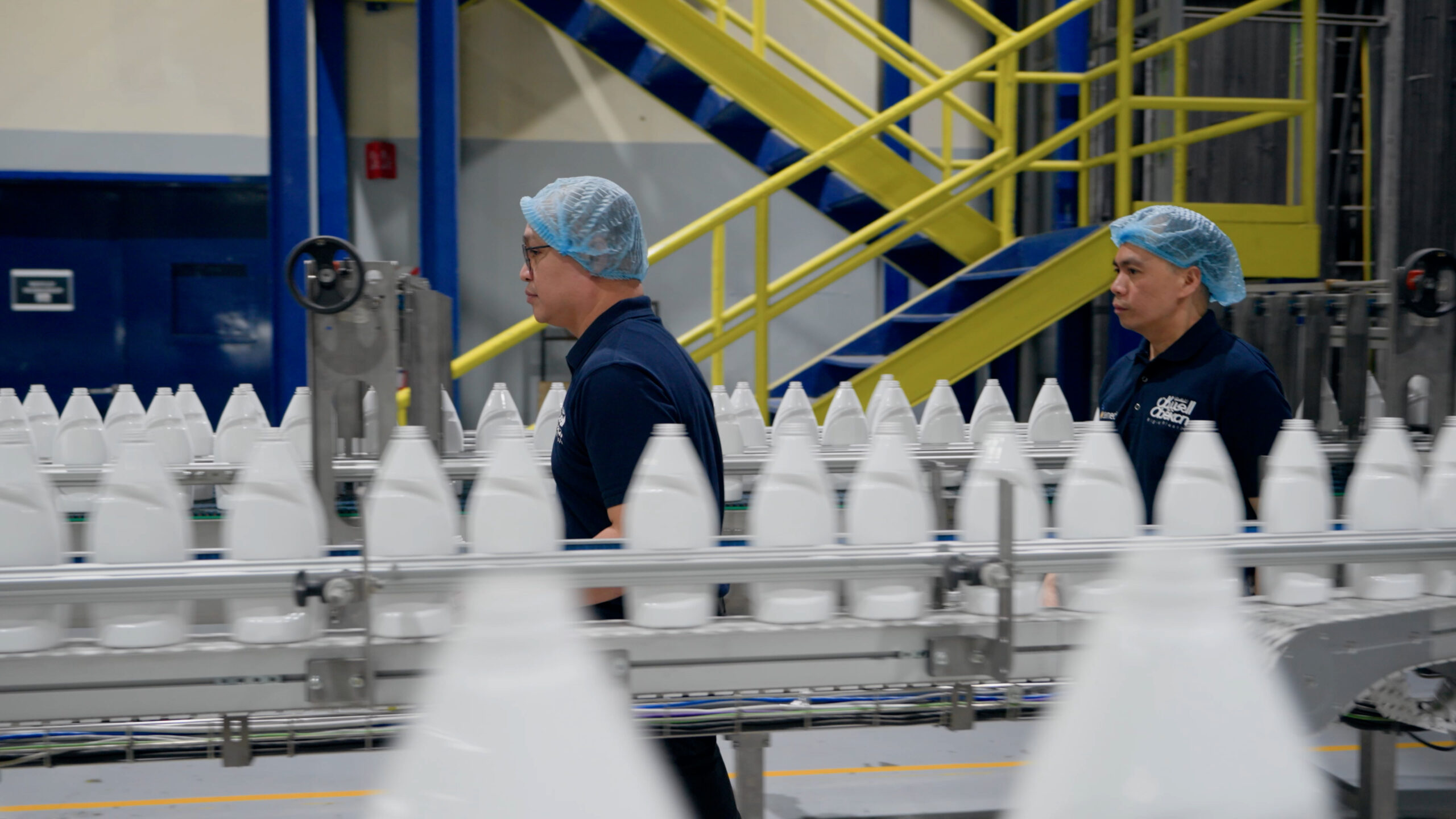
From bottlenecks to breakthroughs: Obeikan’s AI-powered journey
RIYADH, Saudi Arabia – Rex Del Mundo manages a set of assembly lines in a plant that produces plastic bottles and caps, which will eventually contain everything from juice and dairy to detergents for countries across the Middle East.
Before the Rigid Plastics division of the Obeikan Investment Group (OIG) adopted a “smart factory” software platform called O3ai that was built in-house, Del Mundo spent nearly three hours of each day with machine operators and engineers, analyzing the previous 24 hours of data, which had been painstakingly collected by hand in logbooks.
Those meetings were tedious and sometimes contentious, he said, with disputes about who was to blame for whatever problems arose – and it could take days to find the source of a breakdown in machinery or a flaw in the bottles they produced.
Now, using the O3ai “smart factory” platform that he helped develop, Del Mundo can review the data from the previous 24 hours of operation in just a few minutes.
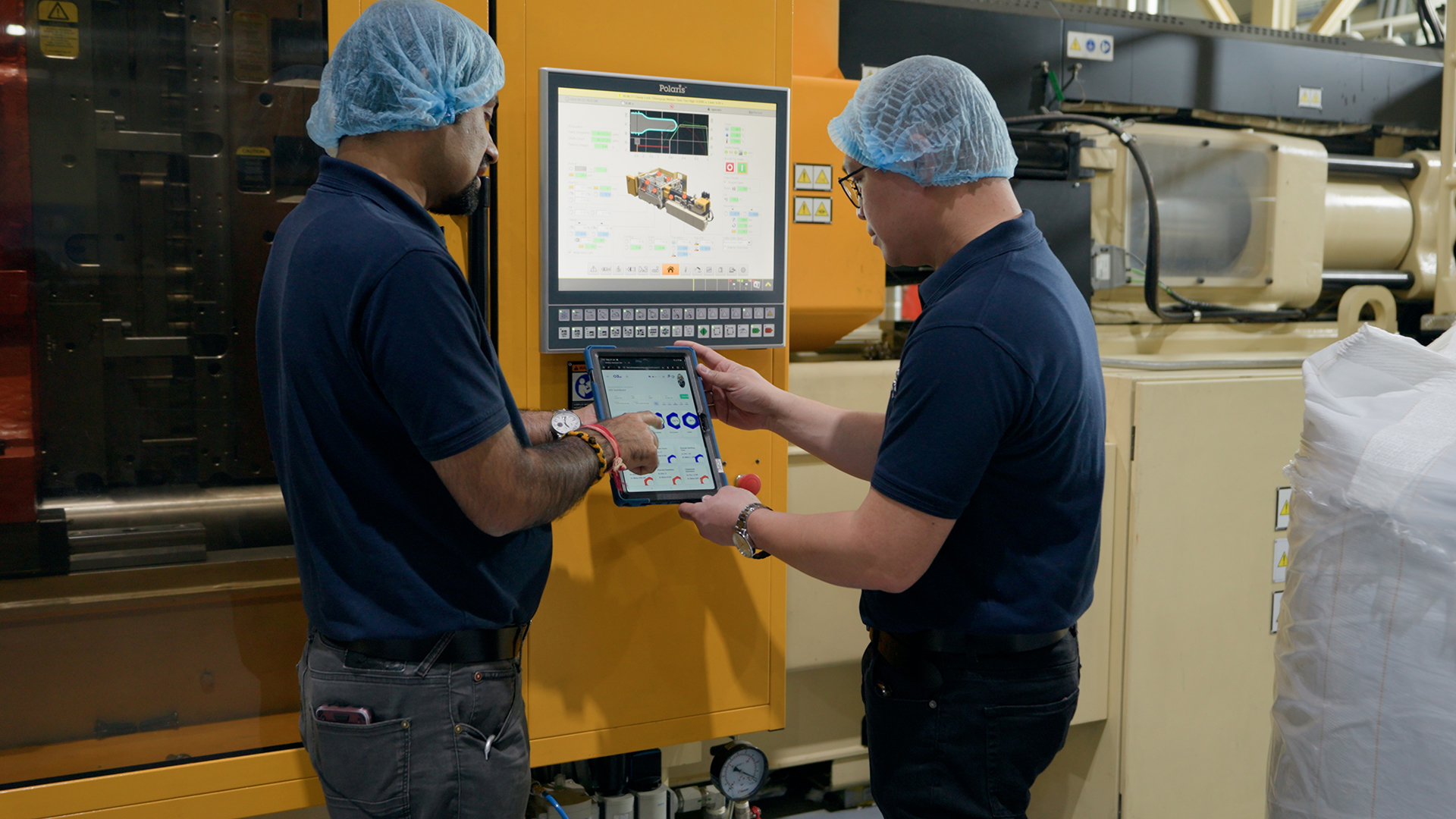
O3ai is backed by Obeikan ventures in strategic partnership with Microsoft. The AI-powered platform was built on Microsoft Azure Service technologies.
In the command center, Del Mundo can pinpoint when a breakdown happened, why it happened and how to correct it with the click of a mouse. “Instead of looking backward, now we are looking ahead, seeing problems before they happen,” he said.
The software platform has transformed operations at the 20 factories in several countries operated by OIG, which has more than 3,000 employees and is one of the largest makers of consumer packaging, from plastic to glass, in the Middle East.
“It’s an engineer’s dream,” Del Mundo said with smile. “And we’re all looking at the same data, so there’s more collaboration, too.”
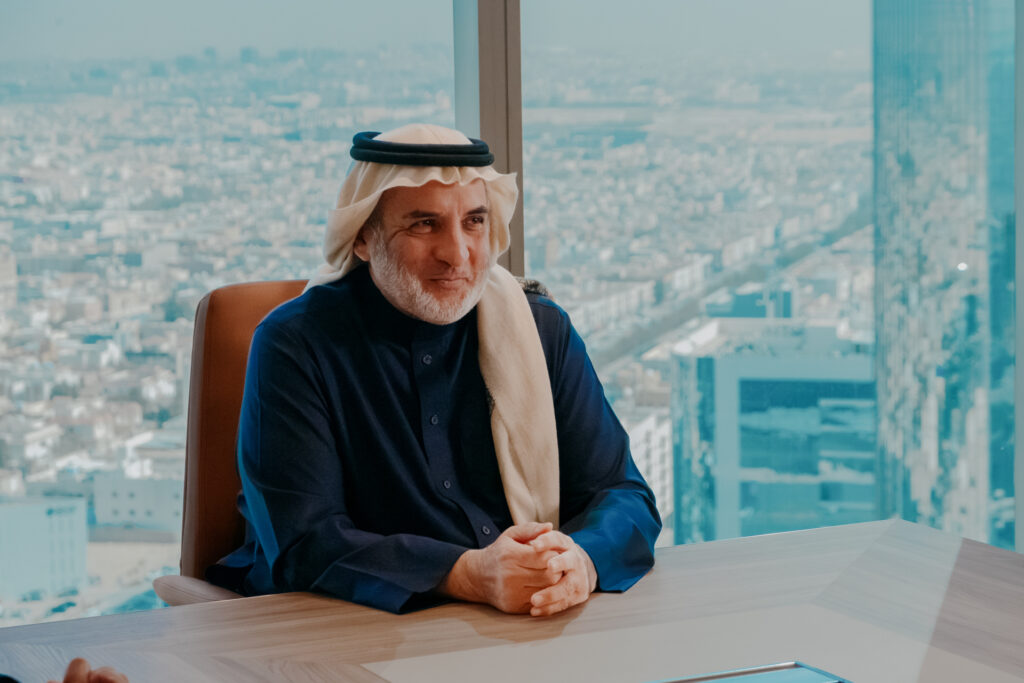
The O3ai platform was, in fact, an engineer’s dream — that of Abdallah Al-Obeikan. The CEO of OIG since 2002, Al-Obeikan has an electrical engineering background and is Chairman of the Riyadh Chamber of Commerce. An advocate of the Lean system of management, he has cultivated a culture of continuous improvement at Obeikan.
“We needed to meet the quality demands of our customers and to manage the price, to compete in this market,” Al-Obeikan said in his office in the financial district of Riyadh. “We asked ourselves, ‘How can we manage these huge systems and the complexity into something more simple?’”
Al-Obeikan said the company aligned with Microsoft to create the capabilities to connect its 1,200 machines, 280 assembly lines and 3,000 employees into a cohesive whole.
Obeikan Group relies on O3ai to analyze that data, provide real-time feedback and pinpoint problems relating to quality, waste, efficiency and productivity before they happen. The results, a 30 percent increase in overall efficiency and millions of dollars in savings, according to Al-Obeikan, convinced him that the software would be of great interest to other manufacturers.
Now OIG has spun off O3ai as its own company and is selling the platform in the Middle East, Europe and soon in the United States, where it’s moving the software company’s headquarters in coming months.
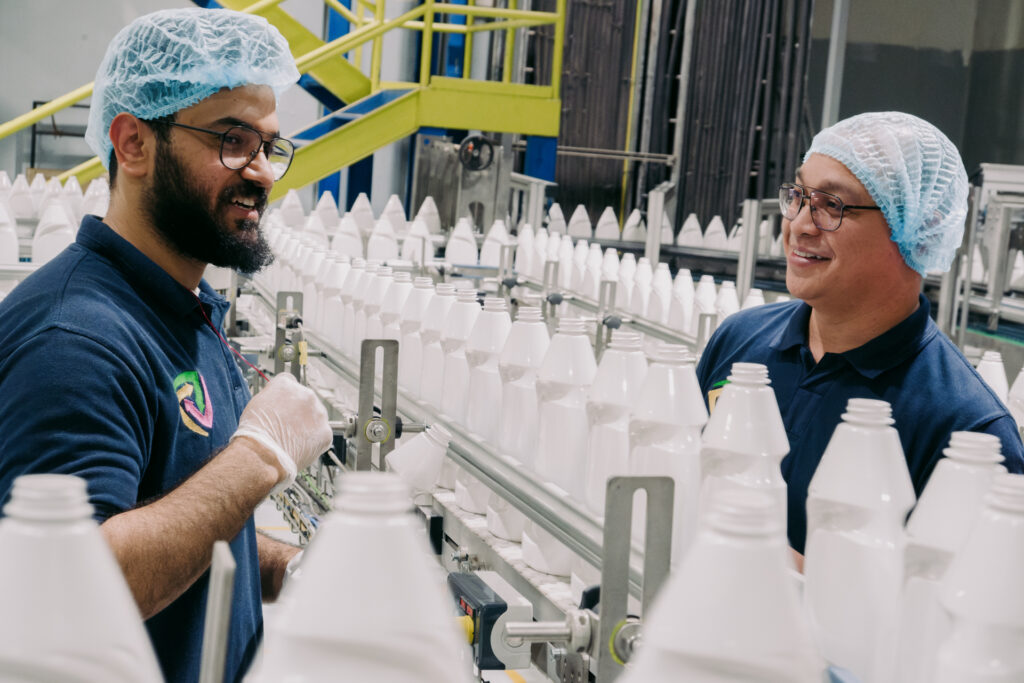
Harnessing the power of Copilot, Chatbots and IoT
Al-Obeikan hired Tarik Taman, an American with a long history of executive management in software companies, to be general manager of the new O3ai startup. What convinced Taman to take the job was that he could not find anything else like it on the market: a complete smart factory platform underpinned by a guiding philosophy – the Lean management system.
“Lean transformations drive value, always,” he said. “Automated lean transformations drive even more value, because it’s easier to adopt, easier to track, easier to sustain and easier to optimize because it’s all digital.”
He said that was evident in the results O3ai achieved at Obeikan – in four years it went from a $750 million company to a $1 billion company with a greatly improved bottom line and better employee engagement.
Taman said that even though O3ai emerged from a long-established family company, it has many of the virtues of a startup, thanks to the vision of Al-Obeikan.
“We really have had the good fortune to have something called last-mover advantage,” he said. “We’re one of the first software platforms in our space where the first line of code was written in the 2020s, so we don’t have 10- and 20-year-old legacy code that we’re trying to rewrite the logic of constantly.”
He credits the partnership with Microsoft for providing an extra competitive advantage.
“Because we partnered with Microsoft from day one, because we’ve used all of the infrastructure and service that Azure has to offer, we get to move at higher speed as compared to legacy software.”
Taman said that O3ai started by using machine learning in Azure, but it quickly adopted Azure OpenAI Service and Microsoft Copilot when they became available. O3ai created its own chatbot that digests and interprets all the data that is constantly being produced by the machines on production lines. Each machine is equipped with a system of sensors that feeds data into O3ai — that system is known as IoT, or the Internet of Things.
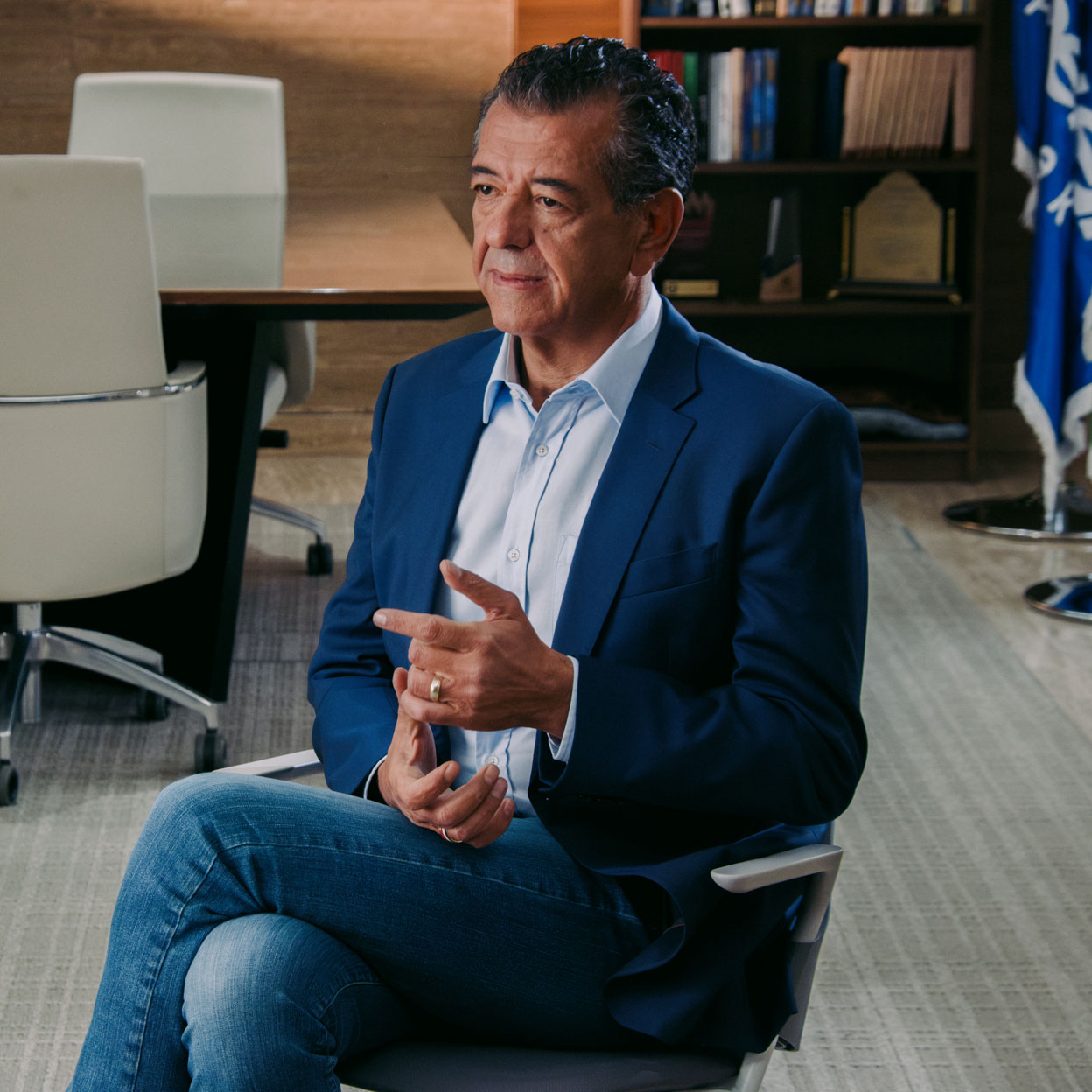
“The amount of data that’s coming out of the shop floor is amazing,” Taman said. “A typical medium to large factory would have 50,000 IoT signals coming into O3ai per second. And with those signals, you have to orchestrate everything, everywhere, all at once. That is a hard job to do, and that’s where you need AI.”
O3ai: Unlocking the ‘wow’ in manufacturing
Copilot processes the signals coming from machines, recommends actions, answers questions and provides insights to operators in real time, he said.
Khmaïess Al Jannadi is the director of strategic partnerships at Obeikan Digital Solutions. He’s been with the Obeikan group since 1998, and helped oversee the digital transformation of the company.
As an engineer with a long history in manufacturing, he was painfully aware of how operations were restricted because of a lack of data. The changeover was a difficult 10-year process.
“We first had to get organized – that means having good operating and management systems in place. Then we had to get connected – you can’t say you are a digital factory if you’re not getting data from your machines,” Al Jannadi said. “Machines talk, and you need to listen to them.”
That meant adding sensors to machines that didn’t have them and creating a network to feed signals into a data platform.
“After that you have getting insights – now we have data coming in, we need to look at it and make decisions,” he said. “Finally, you have optimization, and that is a process that never ends.”
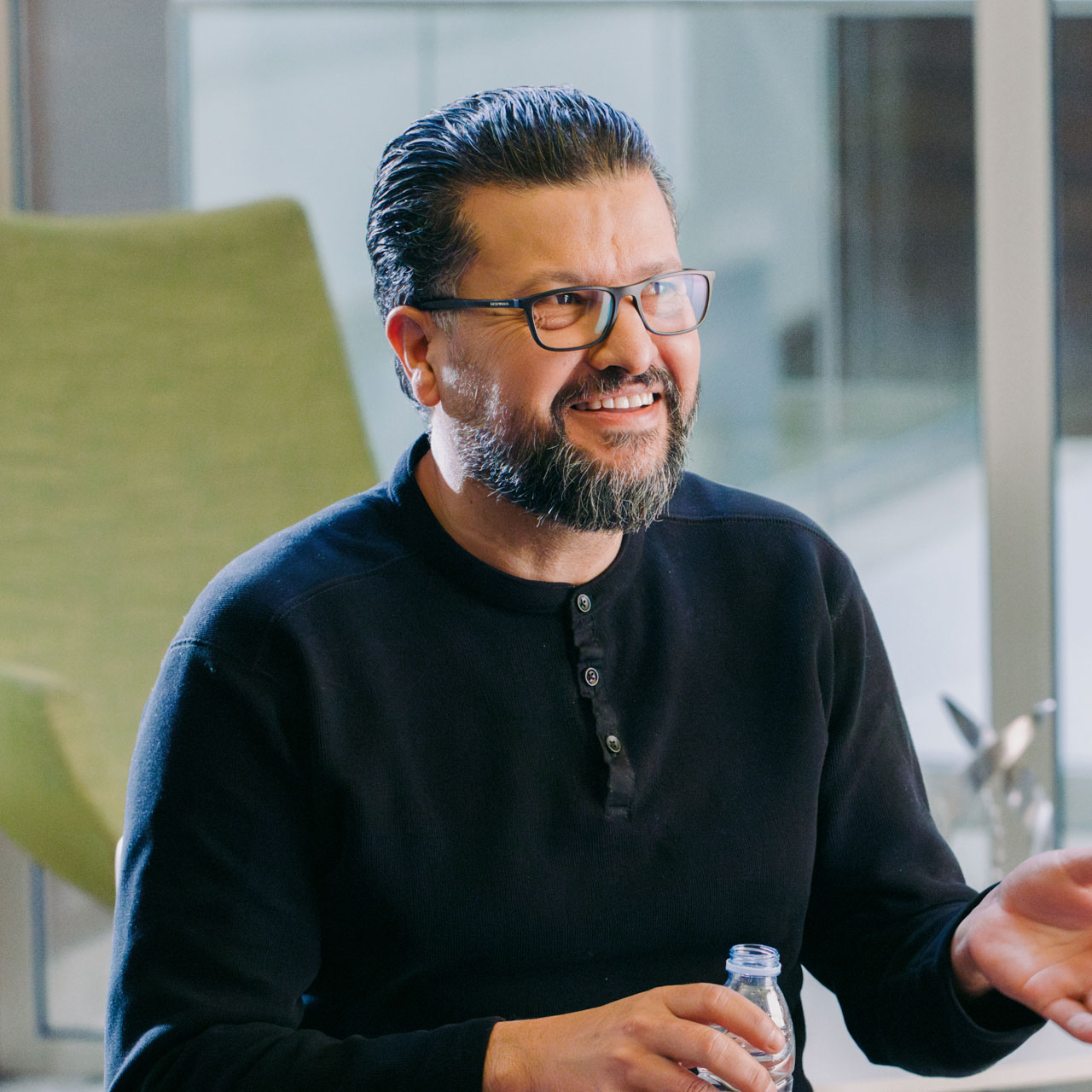
“Using AI to reduce your costs is not really a luxury to do. It’s critical to survive.”
He said Obeikan had the luxury of using its own factories to develop and perfect the system, then introduce it to some of its top clients – the makers of the products that go in its packaging. He said now 20 to 25 percent of Obeikan’s packaging clients have adopted O3ai. “And now we are taking it globally, because we think we have something really unique,” he said.
On his laptop, he showed how simple it was to locate and track a problem in O3ai. In a case where a customer had complained about defects in a batch of bottles, he could pinpoint when it happened and that the cause was excess temperature at a specific step in the process of making the bottles.
“That is a wow thing in manufacturing,” he said. “Trust me, before we would have to hire a reliability engineer and spend a lot of time looking for an answer. Now we can find it in minutes, and solve the problem right away.”
Al-Obeikan said that he believes that “every company needs to be a software company” and that Obeikan Group’s pursuit of digital solutions in manufacturing was an existential one.
“Using AI to reduce your costs is not really a luxury to do. It’s critical to survive,” he said. But Al-Obeikan also said that pursuit has helped push Obeikan beyond its roots to be a global player.
“I was a big believer that a Saudi Arabian company can disrupt a mature market because we can go faster – we don’t have a long legacy, but we have the capability like the others and global access to technology like Microsoft offers.”

